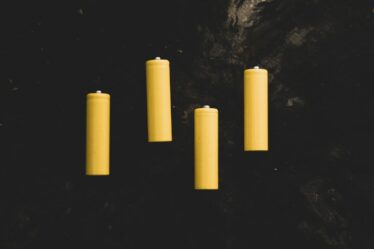The COVID-19 outbreak has brought to the forefront debates surrounding Taiwan and its position in the international system. China regards Taiwan as an inalienable part of itself and has always been against Taipei asserting its individual identity. The China-Taiwan relations have become increasingly hostile after the election of Tsai Ing-wen as the President of Taiwan in 2016. Tsai belongs to the Democratic People’s Party (DPP), which is seen as having a pro-independence agenda. Beijing has undertaken every possible step to undermine Tsai’s position both globally and domestically. After Tsai became the President, Taiwan lost seven diplomatic allies to Beijing. China has also been extra vocal and critical of any arms sale to Taiwan by the United States. Beijing has used its economic clout to harm Taiwan’s economy, one major step being discouraging Chinese people from visiting Taiwan as tourists.
However, such actions have backfired and did not have the result that China expected. Tsai was re-elected as the President in January 2020. This outcome was a clear indication that Taiwanese people were not ready to bow down to Beijing’s diktats, and the steps adopted by China had the opposite effect. China has also prevented and stalled the entry of Taiwan into any major international institutions and groupings, arguing that it is a part of China and does not require any separate representation. It has been very critical of any organization that is perceived to be keen to give Taiwan an independent platform.
The COVID-19 outbreak however, calls for a study and analysis of the Taiwanese model of pandemic control. Even though Taiwan is not a part of any global institutions, its success in flattening the curve as efficiently as it did is a study waiting to happen. At the end of January, Taiwan had reported four cases. The government reacted promptly and has managed to reduce the number of total infected cases to less than 400. They have successfully isolated its population of 24 million. The success of Taiwan has also given hope to the arguments that democracies can also manage to reign in the spread of pandemics and the Chinese style lockdowns are not the only model. However, whenever there are global discussions, the ‘Taiwanese model’ does not receive major attention. One major factor behind this neglect is that Taiwan lost its observer status at the World Health Organization (WHO) in 2016 when Tsai won the elections.
In an interview to the Time, Tsai has elaborated on the Taiwanese model of fighting and containing the COVID-19. She explained that it was a combination of efforts by various sectors of the society like the private actors, society, medical professionals and the government. When Taiwan realized that there was a new illness like the severe acute respiratory syndrome (SARS) in China, it started monitoring the passengers coming from Wuhan. The Central Epidemic Command Center was established in January 2020 to look for prevention. In addition, quarantine for passengers and travelled restrictions were put in place. When the first case was reported in Taiwan on January 21, 2020 major efforts were undertaken to trace the travel history and ways were adopted to isolate the person to prevent further infection.”
One positive outcome of this pandemic for Taiwan has been the acknowledgement of help coming from the European Union (EU). The EU has for long been a firm supporter of the ‘One China Principle’ and this can be perceived as a major step for Taiwan. It has also gained major goodwill globally by donating facemasks and ramping up domestic production of the same. The assistance from Taiwan, which does not have formal diplomatic ties with EU, has further strengthening its global appeal.
Taiwan has also been asserting that it was more responsible towards the global community when compared with the Chinese response. It has also asserted that it was the first one to report the outbreak. Taiwan has been persistent about the argument that it was the first to give a warning to the WHO about COVID-19 on December 31, 2019. Taiwan had reported to the WHO about human-to-human transmission of a new type of pneumonia with the epicentre being Wuhan. However, one can argue that because of pressure from Beijing, the WHO Director General did not pay much heed to such reports. Consequently, if the WHO had taken the reports seriously and acknowledged the gravity of the situation in a timely manner, the world could have been in a very different position.
China has been known to fudge the data as well as suppress any information regarding COVID-19. It had acted similarly during the SARS outbreak of 2003 as well. With such a history why did the WHO did not act on Taiwan’s warnings. Was it just the economic and political pressure of Beijing? One cannot deny the economic influence that China enjoys in most of the multilateral institutions. However, does this justify putting at risk the lives of billions of people at stake? Shouldn’t the WHO be immune to such geopolitical dynamics and work independently? Questions like these are tough to answer, given the fact that the WHO is heavily dependent on external funding, and money will continue to be the driving factor. Dr. Tedros Adhanom Ghebreyesus is also singing Chinese praise because of the extensive investments that are flowing from China into Ethiopia, his home country. China today is the largest trading partner of Ethiopia and is also helping build the latter extensively, something which Tedros is aware of. It can also be a major reason why he is taking extra efforts to not upset Beijing.
Beijing, which is in the midst of controlling the pandemic, has still not digested the Taiwanese success story. It is still worried about the goodwill and domestic support that Tsai will gain in addition to global admiration. The Chinese foreign ministry spokesperson said, “Its true aim is to seek independence through the pandemic. We are firmly opposed to this, and their scheme will never succeed”. In the larger game of geopolitics, one question stands out. If Taiwan was ruled by the status quo-supporting Kuomintang Party, would Beijing’s approach have been different, considering that Taiwan would have regained its observer status in the WHO? This is a question that does not offer any straight answers, but is worth considering.
With the world economy struggling to get back on its feet and the number of fatalities increasing day by day, one is forced to ponder if there is a need to learn from Taiwan. Economically, Taiwan is heavily dependent on China, but it did not shy away from pointing out the outbreak. Should the other countries have done the same? Giving priority to economics, a number of countries did not start testing people traveling to and from China. One major example being Iran, which has faced a number of casualties and one major criticism has been that it did not begin testing travellers from China sooner. The delay is considered to have been the cause of the massive rate of infection.
To also argue that Taiwan is a small island with a small population is also not valid here. Taiwan is one of the major parts in the global supply, with regular flights to China. There are 1200 weekly flights between China and Taiwan. However, the COVID-19 has brought out the weaknesses of the globally integrated economic structure. Taiwan is heavily integrated into the Chinese economy and it may not be easy for it to totally move away, but it has clearly highlighted that a fine balance can be achieved between economic interdependence and the safety and health of one’s citizens.
Nevertheless, Taiwan will be undertaking efforts to gain entry into the WHO, which will become a flashpoint between Beijing and Taipei. Media reports in Taiwan asserting its entry have been gaining space. China is receiving a lot of global criticism for its initial handling of the COVID-19 and this may prove to be a fertile ground for Taiwan to assert its suppressed identity and a successful democracy.
Disclaimer: The views expressed in the article are personal.
Dr. Gunjan Singh is an Assistant Professor, Jindal Global Law School, O. P. Jindal Global University, Haryana.


